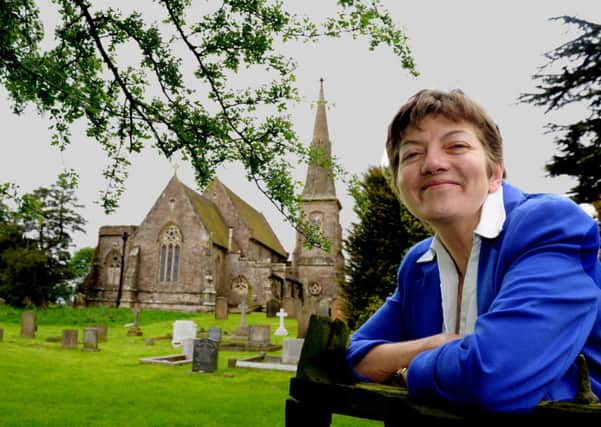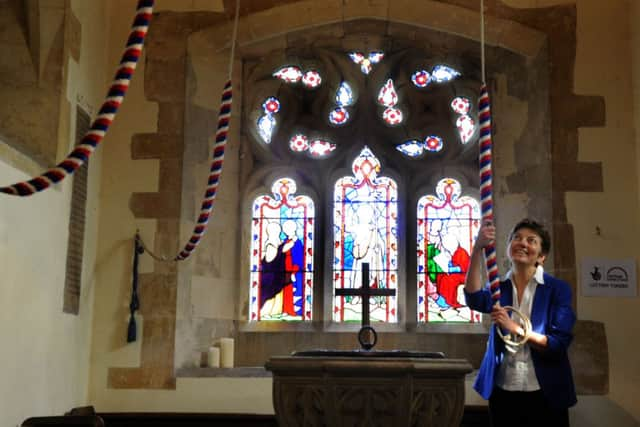Exclusive: Fears for Yorkshire’s oldest churches


Regional leaders of the Church of England have warned that they are increasingly being called upon to make ‘weighty’ decisions on houses of worship across the region.
Recent years have witnessed a rise in parishes using schools, village halls and even the homes of vicars to host services as a cheaper alternative to the upkeep costs of crumbling historic buildings.
Advertisement
Hide AdAdvertisement
Hide AdHowever the closure of so many churches is not an indication that faith is in decline, with church leaders saying that in some areas churches are growing, with many immigrant communities and ethnic groups forming their own houses of worship. The Rt Revd Nick Baines, bishop-designate of Leeds, told The Yorkshire Post: “Habitual worship has changed and you’d expect that in any generational change. There have been closures and it might be more that churches which need to close, but that doesn’t mean worship in the community is no longer there.”


The former Diocese of Wakefield, which has just joined with Bradford and Leeds and Ripon to form the new super-diocese of West Yorkshire and the Dales, had witnessed only four closures over the past two decades.
But this year three, including now-demolished Stanley St Peter’s, have closed or are likely to do so.
Rev Baines said: “If you’ve got a building with costs of £100,000 a year and it could cost, say £10,000 a year to rent out a school.
“In any other walk of life it’s a no-brainer.
“But in some places churches are the bearer of history.
Advertisement
Hide AdAdvertisement
Hide Ad“In some cases a change in leadership at the church might attract a whole new congregation, but there are other areas where a church has simply had its day.
“Resurrection is at the heart of the Christian faith. If you believe in the resurrection you’ve got to be prepared for the death. By closing something you might be allowing something else to grow.
“We have to look at the history and whether it is right for the community. We ask whether, when everything else is changing in a community, does the church have a responsibility to stay put?
“These are weighty questions and ones which are not taken lightly.”
Advertisement
Hide AdAdvertisement
Hide AdIn the Diocese of York, 10 churches have been closed in five years. Churches of St Nicholas and St Matthew’s in the parish of Withernsea are currently being merged into one because the Parochial Church Council (PCC) cannot afford the upkeep of both.
A spokeswoman for the Diocese of York said: “Churches tend to close because the congregations can no longer fund the upkeep of a building and its ministry.”
Comments on the future landscape of the CofE in the region have been triggered by the national debate surrounding David Cameron’s call for Britain to “be more confident” about its status as a Christian country, which attracted criticism from the British Humanist Association.
Leading academics and atheists accused the Prime Minister of risking alienating members of society.
Advertisement
Hide AdAdvertisement
Hide AdThe Archbishop of Canterbury waded in to the argument, stating that UK law, ethics and culture were based on the church’s teachings and traditions, but it was not Christian ‘in terms of regular church-going’.
Leeds and Ripon has closed six Anglican churches in the past decade, though some remain a place of worship for other denominations.
In some circumstances the C of E calls upon the Churches Conservation Trust to take over historic buildings no longer required as a house of worship.
The national charity currently runs 27 alongside local communities to ensure they are kept open and in use. The trust is not affiliated to any religion, but churches remain consecrated under their ownership.
Advertisement
Hide AdAdvertisement
Hide AdRegional director Rosi Lister said: “The costs can be a hefty burden for one group of people, whereas we look at shared use of the building in special cases where there is historical or architectural significance.
“The trust negotiates with the C of E with each case, but the funding needed is significant and our government grants are decreasing.
“We tend to take around two or three churches in the region every year.
“Closures coming to us have been consistent since we began working in 1969 and I think it will continue that way.”
Advertisement
Hide AdAdvertisement
Hide AdResearch conducted by the C of E has Recent research from the C of E has highlighted ‘fresh expressions’, new forms of church which meet in a variety of venues such as cafes and drop-in centres as an area of growth, suggesting that Christianity can remain at the heart of communities even though the number church buildings or attendance for traditional Sunday worship may have depleted.
GraceSpace, a church group in Saltaire, Bradford began at a local cafe and now meets in the home of Revd Colin Blake in Shipley.
He said “We are church for people who don’t go to church. An experiment in emerging Christianity for the 21st-century. We practice the values of community, hospitality and celebration - and we love food.”
One example of a growing church is St Paul’s Church in Holgate, York, where the number of worshippers has increased steadily in recent years. Some weeks as many as 200 people, including many young families, turn out to Sunday services.
Advertisement
Hide AdAdvertisement
Hide AdReverend John Lee, rector at St Paul’s, said: “I think the Christian message is still immensely powerful, we just need to present it in ways which make it relevant to them. Sundays here are very informal, the message is that if you’ve got a young family no one is going to ‘shush’ you.
“Rather than imposing it on people we leave them to explore it and find their own way to belong.”